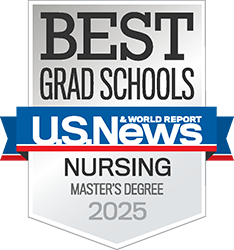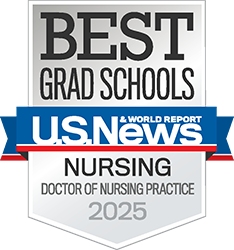2024 Aging in Place Research Awards Researchers study environmental impacts, assistive robotics, gait analysis

As global populations age, enabling older adults to live independently in their own homes continues to gain importance.
To facilitate the testing of technologies to support this goal, Cizik School of Nursing at UTHealth Houston in 2020 opened its Smart Apartment, a one-bedroom laboratory, and awarded the first Aging In Place Research Awards. These interdisciplinary grants provide seed money for pilot research conducted in the Smart Apartment. Each grant team must include at least one faculty member from Cizik School of Nursing and one who is affiliated with the UTHealth Houston Institute on Aging.
These grants are supported by the Maria C. and Christopher J. Pappas Family Distinguished Chair in Nursing Endowment (held by Constance Johnson, PhD, RN, FAAN) and the UTHealth Houston Institute on Aging (Aanand Naik, MD, executive director).
The program has supported seven projects since 2020, including three grants awarded this year that advance research in neighborhood impact, assistive robotics, and gait analysis.
Environmental characteristics and their role in promoting healthy aging
Research has found numerous benefits to aging in place, including improved mental health, greater happiness, and lower mortality rates. However, for older adults to derive these benefits, they require supportive environments.
Ryan Ramphul, PhD, an assistant professor in the department of epidemiology at UTHealth Houston School of Public Health, will use a $40,000 grant for his study, “The Influence of Neighborhood and Environmental Characteristics on Physical and Psychosocial Wellbeing in Older Adults Analysis Using Data from the CART study.”
"We must study the different characteristics of the environment and how they can influence the ability for older people to age in place – something that has been understudied," said Ramphul.
He will delve into data from the Collaborative Aging Research using Technology (CART) initiative and other sources to examine the effects of neighborhood characteristics on the lives of older adults. The CART initiative collected data on 200+ older adults living in homes with monitoring sensors, FitBit devices, and weekly mental and social health surveys.
"We expect our findings to highlight the importance of creating supportive environments – including the accessibility of green spaces and neighborhood walkability – to promote physical activity and positively impact mental health, reducing the symptoms of depression, anxiety, loneliness, and social isolation," said Ramphul.
Future research will leverage the study's findings to develop interventions that improve adherence to health behaviors and promote healthy aging.
"What we learn in the study has the potential to better inform how we design living spaces for older adults and shape the future of our communities," said Ramphul.
Co-investigators are Naik and Carina Katigbak, PhD, RN, associate professor in the department of research at the Cizik School of Nursing.
Enhancing independent living through assistive robotics
As the aging population continues to grow, so does the demand for innovative solutions that support independent living, including robotics.
A $40,000 Aging in Place grant will support research on a general-purpose, artificial intelligence-powered robotic system designed to assist older adults with daily tasks, like cooking and handling objects, and to respond to emergencies by learning from human guidance.
The grant was awarded to multiple principal investigators Xiaoqian Jiang, PhD, and Carolyn Pickering, PhD, RN, for their project, “Healthcare Mobile ALOHA: Enhancing Independent Living for Aging Populations.” Jiang is the associate vice president of medical artificial intelligence at McWilliams School of Biomedical Informatics at UTHealth Houston. Pickering, the Isla Carroll Turner Chair in Gerontological Nursing, is executive director of the Cizik Nursing Research Institute and the Roybal Center for Elder Mistreatment Intervention Research.
The pair will use the grant to test a robot's ability to enhance personal and environmental support, which could potentially reduce disabling medical events and increase the amount of time older adults can live independently. The project involves adding hardware and upgrades to the Mobile ALOHA system, which was pioneered by robotics engineers at Stanford University based on the Google DeepMind ALOHA platform. (ALOHA stands for “A Low-cost Open-source Hardware System for Bimanual Teleoperation.”)
"Current solutions, such as home modifications and human caregivers, often don't fully meet the needs of older adults, especially in emergencies. A smart robot could help by assisting, monitoring, and providing companionship to seniors who want to live more independently," said Xiaoqian.
Today’s shortage of nurses and heavy burden on caregivers leads to problems, including higher costs and overall stress. The general-purpose AI-powered robotic system represents a significant step forward in using robotics to support older adults aging in place.
"Our research could pave the way for more accessible, cost-effective solutions that empower older adults to maintain their independence while easing the strain on caregivers and health care systems," said Xiaoqian.
Co-investigators on the study include Elliot Herring, a machine learning engineer at McWilliams School for Biomedical Informatics, and Jayden Lu, an undergraduate student from the University of Texas at Austin.
Predicting and preventing falls in older adults
Stephanie Silveira, PhD, an assistant professor in the Department of Management, Policy, and Community Health at UTHealth Houston School of Public Health, is leading a multidisciplinary team testing GaitMate. This smartphone app predicts fall risks by analyzing a person's gait or walking pattern. It was designed by Johnson along with Dustan Brennan, director of user experience and support with UTHealth Houston’s information technology department; Shou-Hsiu (James) Chang, PhD, PT, an associate professor at McGovern Medical School and administrative director of the UTHealth Houston NeuroRecovery Research Center at TIRR Memorial Hermann; and Rice University Engineering students.
The study will collect real-time data from 50 older adults performing standard activities of daily living in the Smart Apartment. The team will collect gait data, including walking speed, stride length, step length, and step time to help determine GaitMate’s accuracy and reliability. The protocol includes an additional aim to assess gait patterns during a standardized fall protocol in 25 healthy adults.
"The ultimate goal is to make the GaitMate app a widely accessible tool for older adults and their caregivers. It could also be a game-changer for health care workers in their assessment and long-term surveillance of patients," said Silveira.
Silveira hopes the research will lead to helping other patient populations who have mobility issues, including those with spinal cord injuries, multiple sclerosis, and patients with Parkinson’s Disease. Her project, “Assessment of the GaitMate Application for Activities of Daily Living, Gait Metrics, and Falls,” received a $30,000 grant.
Co-investigators on the research study include Pickering and Chang as well as Evan Kwiatkowski, PhD, UTHealth Houston School of Public Health, Department of Biostatistics and Data Science; Catherine G. Ambrose, PhD, McGovern Medical School at UTHealth Houston, Department of Orthopedic Surgery; and Nahid J. Rianon, DrPH, MBBS, McGovern Medical School, Joan and Stanford Alexander Division of Geriatric Medicine, Department of Internal Medicine.
Laura Frnka-Davis



